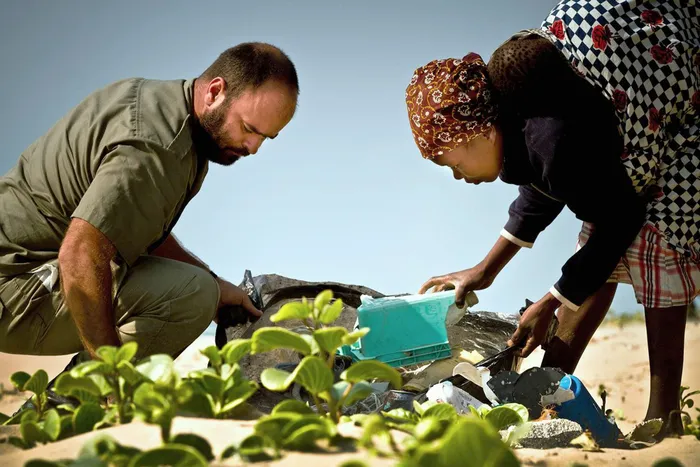Contributions people make daily to keep planet healthy noted on World Environment Day

The Peace Parks Foundation has appealed to the public to take a second look at everyday practises to help restore the planet. Picture: Supplied The Peace Parks Foundation has appealed to the public to take a second look at everyday practises to help restore the planet. Picture: Supplied
Cape Town – In working towards creating a future in harmony with nature, it is important to note that contributions people make in their daily routines to keep the planet healthy are just
as important as large-scale conservation efforts.
This was according to Stellenbosch-based conservation NGO, the Peace Parks Foundation, as the globe marks World Environment Day today, commemorated under the theme “It’s Time for Nature”.
Highlighting how small initiatives can grow, the foundation, which works to renew and preserve large, functional ecosystems in Africa, said what started with a small group of motivated individuals sharing office space has developed into one of southern Africa’s most impactful NPOs.
Since its establishment in 1997 with founding patrons Nelson Mandela, Prince Bernhard of the Netherlands and Dr Anton Rupert, the
organisation has grown with just under 200 staff.
Peace Parks’ chief development officer Kathy Bergs said: “When we started to grow significantly, we noticed an increase in our energy consumption. Cognisant of the impact this might have on the environment, we took the necessary steps to ensure we remain ‘green’.”
The foundation’s head office runs on a solar power system. In 2015, 88 solar panels were installed on the building’s roof.
“On average, the panels generate about 15 kilowatts of power during the summer months,” facilities manager Elfredo Kock said.
“Energy-efficient air conditioners and lighting are also installed throughout the building to ensure we use as little as possible because whatever energy we don’t consume goes back into the city’s power grid.”
Implementing eco-friendly approaches in daily operations
reduces waste that could end up in oceans, water systems or landfills and with this in mind, the head office team recycles whatever they can no longer use.
The remoteness of many of the conservation areas in which Peace Parks operates means they are by default reliant on clean energy.
“Banhine and Zinave national parks, which sit within the Mozambique component of the Great Limpopo Transfrontier Conservation Area, are both completely off the grid using only solar energy.
"In other areas we are working to secure funding for green waste management,” said senior project manager working in Mozambique, Antony Alexander.
“We invite you to take a second look at your everyday practises and adjust what you can to help us restore a healthier tomorrow for our beautiful planet,” the foundation said.